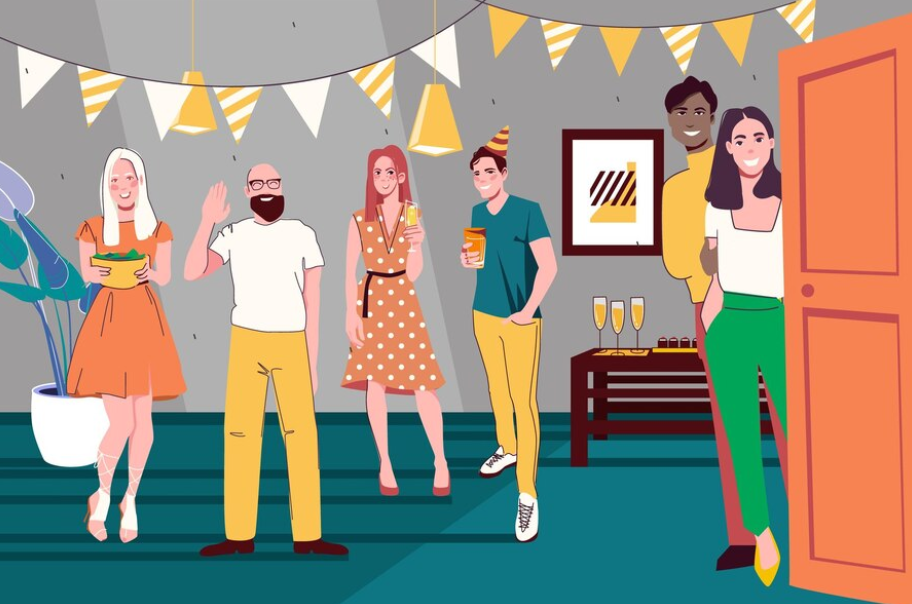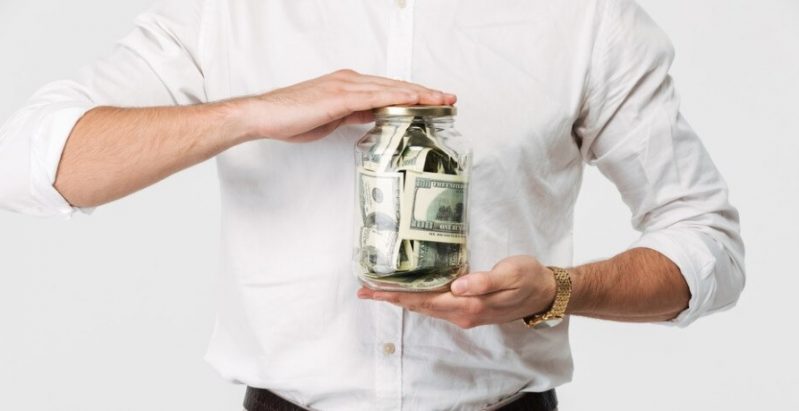Fall Asleep Faster With These Scientifically Proven Hacks

©️ Freepik
Let’s talk about something we all need but might not always get enough of – sleep! Artists can get the best of those sleepless nights, but some of us really need those 8 hours of quality sleep. Achieving restful and rejuvenating sleep is essential for overall well-being. So, if you find yourself struggling with sleep, practicing simple yet effective hacks can make a huge difference. Dive into this guide for simple hacks to help you sleep better and wake up feeling refreshed.
Avoid Using Electronic Devices
Engaging in activities like watching TV, playing video games, and using smartphones before bedtime can disrupt sleep due to the blue light emitted from these devices, which may suppress melatonin production. Moreover, keeping the mind active also makes it harder to unwind. To mitigate these effects, one can use blue light-blocking glasses. However, it is preferable to disconnect from electronic devices entirely before bedtime to create a distraction-free and tranquil sleep environment.
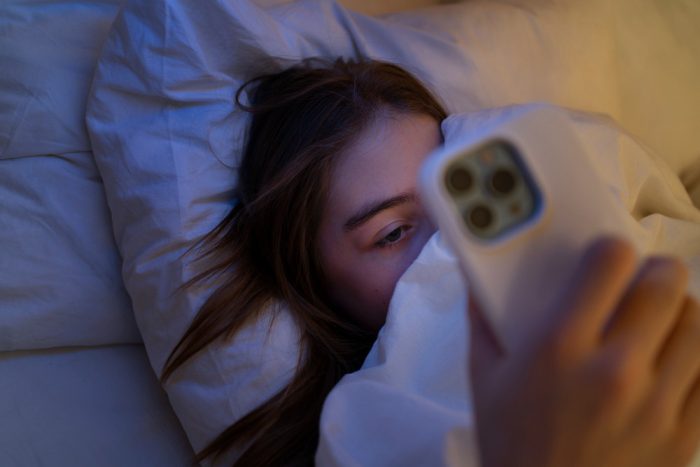
Be Mindful of Your Meals
Be mindful of the timing and content of your meals as they can impact the quality of your sleep. According to findings, consuming food within three hours before bedtime may increase the likelihood of waking up after initially falling asleep.
Moreover, the types of food you choose can also influence sleep quality. While some research suggests that a high-carb diet may expedite the process of falling asleep, it may not contribute to restful sleep. On the contrary, according to this research, meals rich in high-fat content could potentially promote deeper and more restorative sleep.
It’s important to note, however, that there is conflicting research on the specific effects of dietary choices on sleep, highlighting the complexity of individual responses to various foods and meal timing.
Exercise
The timing, duration, and nature of your exercise routine can significantly influence your sleep patterns. Research indicates that older adults who engage in longer periods of physical activity during the day tend to experience better sleep. Both moderate and intense exercise, particularly when conducted outdoors, can positively impact sleep quality.
To optimize the benefits, it is crucial to maintain a routine of moderate-intensity exercise and be mindful of the timing. Early morning workouts may help establish your circadian rhythm, contributing to improved sleep in the evening. On the other hand, exercising within 2 hours before bedtime may potentially reduce sleep quality. Especially if it is done in brightly lit environments like a gym.
Maybe we should make cycling to work a joyful routine.
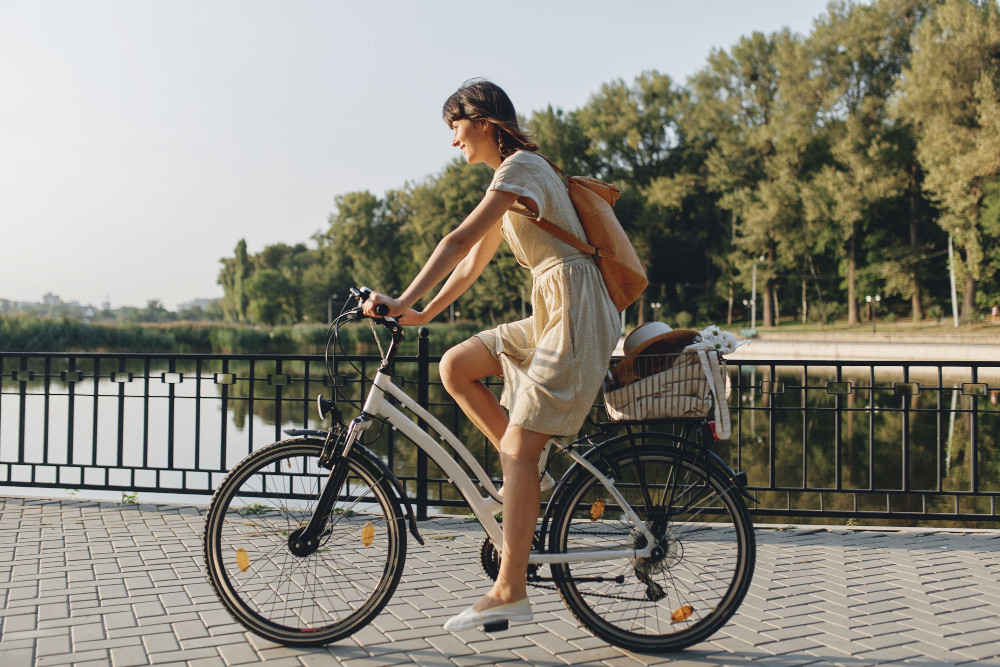
Read Physical Books
Reading a physical book before bedtime can offer various benefits, aiding in the relaxation process. According to a study, engaging with a print book in the hour leading up to sleep may contribute to enhanced sleep quality, duration, and efficiency.
On the other hand, reading from an electronic book could potentially have adverse effects on these sleep factors. For optimal sleep improvement, it is recommended to opt for a physical book rather than an electronic one.
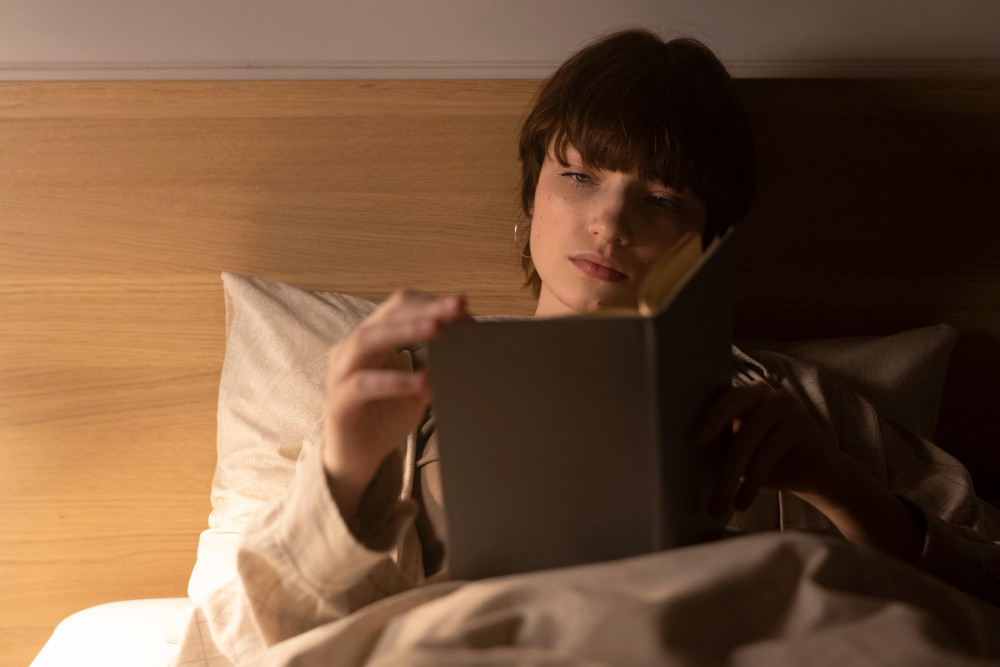
Write
Writing can have a positive effect in reducing depression and anxiety. Therefore, since anxiety can disturb sleep significantly, journaling before bed can be very beneficial to sleep quality.
Moreover, a study found that spending just 5 minutes creating a to-do list was more effective than journaling in helping young adults fall asleep faster. So don’t just write anything. Instead, make a to-do list of the things that are keeping you awake.
To implement this strategy, allocate 15 minutes each night to document your day. Concentrate on positive events, upcoming activities, and your current emotional state to foster a more relaxed mindset conducive to better sleep.
Managing Caffeine Intake
This one is a no-brainer. Managing caffeine intake is crucial for promoting healthy sleep patterns.
Despite the fact that the peak effects of caffeine occur within 30 minutes, its presence in the system can linger for up to 10 hours after consumption. A 2013 study suggests that consuming caffeine at least 6 hours before bedtime may lead to approximately 1 hour less sleep. Moreover, it could potentially accumulate negative effects over time.
Since we are talking about drinks, chamomile tea is a great supplement that helps falling asleep and sleep quality. Remember this when you are wandering in your kitchen at 3 am. Even better, put a magnet on your fridge that says “Chamomile?”
Try Aromatherapy
Explore the benefits of aromatherapy, a practice that utilizes essential oils to aid individuals struggling with sleep difficulties.
Various scents, including peppermint and lavender, have shown the potential to improve sleep. An analysis of 30 studies indicates that aromatherapy can contribute to enhanced sleep quality and the reduction of stress, pain, anxiety, and depression.
Essential oils sound like the best idea for aromatherapy. Employing an essential oil diffuser is an effective way to fill your room with soothing scents that promote a conducive environment for sleep.
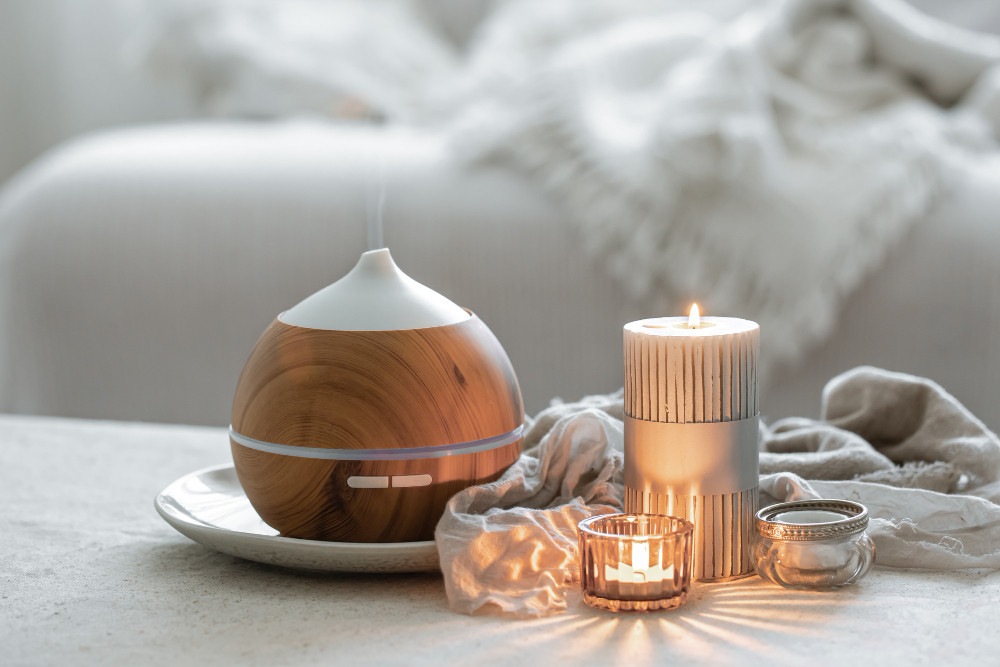
Listen to Relaxing Music
Listening to relaxing music not only contributes to improved sleep but also offers comfort and relaxation before bedtime, potentially reducing anxiety. A 2012 study revealed that exposure to soothing music for 45 minutes at bedtime resulted in a more restful and deeper sleep compared to those who did not listen to music. If relaxing music is not readily available, using earplugs to block out all external noise may also be an effective strategy to facilitate faster sleep onset.
Try the 4-7-8 Breathing Method
Experience the calming effects of the 4-7-8 breathing method, a cyclical breathing technique designed to promote relaxation and ease you into a peaceful state before bedtime. Developed by Dr. Andrew Weil, an integrative medicine doctor, this method draws inspiration from pranayama exercises commonly practiced in yoga.
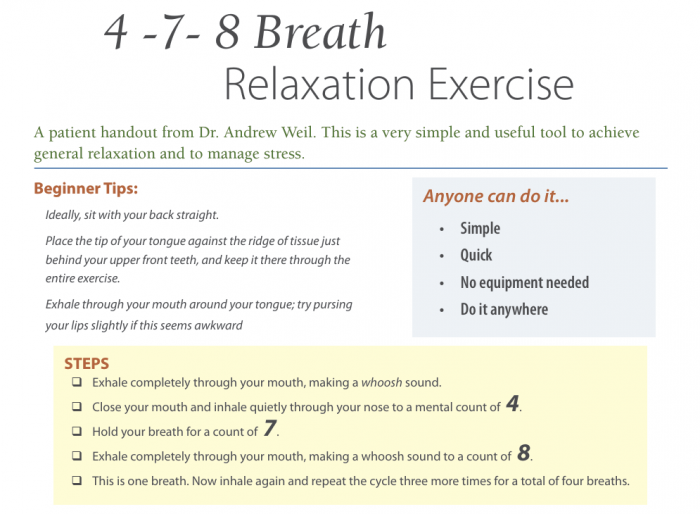
Expose to Both Daylight and Darkness
Based on a 2022 study, exposure to both daylight and darkness plays a significant role in influencing your body’s internal clock. This regulates sleep and wakefulness, impacting the duration, timing, and quality of sleep. Research indicates that each additional hour spent outdoors may advance sleep onset by approximately 30 minutes.
Maintaining a balance between light and darkness is key. This can be achieved by incorporating daylight exposure throughout the day. At night is advised to use blackout curtains to create an environment that helps melatonin production.
Sleep-Enhancing Supplements
Consider incorporating sleep-enhancing supplements when things worsen. This will help facilitate faster sleep onset, enhance the production of sleep-promoting hormones, and promote relaxation of brain activity.
Some of these supplements include:
- Melatonin
- GABA (gamma-aminobutyric acid)
- Magnesium
- 5-HTP (5-hydroxytryptophan)
- L-theanine
However, it is crucial to consult with a healthcare professional before experimenting with any of these supplements. They may have potential side effects or interact negatively with other medications.
As we conclude this exploration of hacks to improve your sleep, remember that quality rest is a cornerstone of overall health and vitality. By incorporating these practical strategies into your routine, you have taken steps towards creating a more conducive sleep environment and fostering habits that promote relaxation. Sweet dreams and here is to waking up each day feeling restored and ready to embrace the challenges ahead. Sleep well!
What helps you sleep better? Please share your practices in the comments below!
You may also like: This Single Factor Can Change Your Child’s Life
